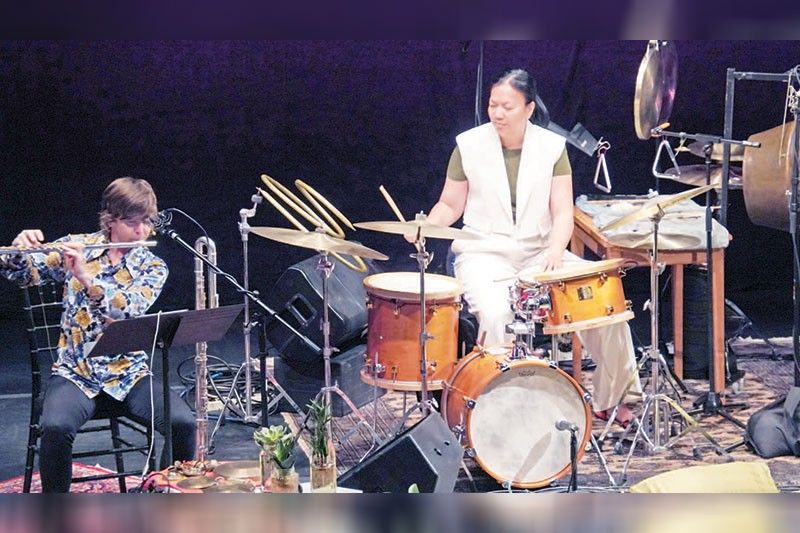
A Pulitzer for Pinoy sounds
Original Pilipino Music (OPM) is on a roll these days. First off. Multo by the alt band Cup of Joe became the first Filipino recording to enter the global charts. Yehey! That means Pinoy pop is now being heard and appreciated globally.
And then we got the news, Sky Islands, a composition by Susie Ibarra, was conferred the Pulitzer Prize for Music. Imagine, a Filipino now has the Pulitzer Prize and it is for music. This one definitely gets a double yehey!
Okay. Okay. The Pulitzer, established by newspaper publisher and politician Joseph Pulitzer, is an American prize. The music prize is annually awarded to the composer of a distinguished musical composition of significant dimensions by an American that has had its first performance in the US during the year.
The winners are always American. I checked out Susie on Wikipedia and she is listed as an American composer. But then her parents are doctors Bartolome and Herminia Ibarra, Filipinos who migrated to the U.S. of A. early in their careers. That was a typical Filipino experience.
Susie was born in Anaheim, California, where Filipinos are everywhere. It is the same case in Houston, Texas where she grew up. The connection may seem tenuous at first but although technically American, her background is descriptive of what millions of Filipinos in the United States are today. Besides, her music including Sky Islands, which won her the Pulitzer is in every way Filipino.
Susie was born on Nov. 15, 1970. She started piano lessons as a kid and then gravitated towards percussion instruments when she grew up. She is now a composer, performer, educator and percussionist who is known for her work in jazz, classical, world and alternative music.

Susie’s passion for music is steeped in a lot of things Filipino. Her music derives from various styles and influences, most of them avant-garde takes on Filipino folkloric and indigenous traditions. The atmospheric Sky Islands blends the kulintang with a string quartet, a flute, a piano and field-recorded sounds.
The music magazine SPIN named her as one of the 100 greatest drummers of alternative music today. She came out as the Best Percussionist in a Downbeat Critics Poll. She is now a Yamaha Drums, Vic Firth Paiste Cymbals Artist.
But in spite of American upbringing, education, honors and all, Susie’s passion for music is steeped in a lot of things Filipino. Her music derives from various styles and influences, most of them avant-garde takes on Filipino folkloric and indigenous traditions. She maybe in Downbeat’s and Yamaha’s esteemed list but it is the Pinoy’s native kulintang that provides the lead in most of her compositions.
The atmospheric Sky Islands blends the kulintang with a string quartet, a flute, a piano and field-recorded sounds. The result is a cleansing, mesmerizing experience that questions the constantly ongoing fascination with pop music. If this must be what being swathe in nature feels like, then why bother with something else.
Among Susie’s other works are Folklorico, a song cycle made up of 11 pieces that chronicles a day in the life of a Filipino migrant worker; Pintados Dream, a drum concerto that became the score to the visual art exhibit of Makito Fujimura; Drum Sketches, solo pieces performed with a drum kit, sarunay, kulintang and field recordings; and Saturnalia, music theater in English and Thai.
You want more? Remember I said Pinoy music is on a roll and here is another proof. Ruby Ibarra, a hip-hop artist, won the 2025 Tiny Desk Award for her work Bakunawa. Ruby derived inspiration from the Filipino folk tale of Bakunawa, the dragon who swallowed the moon.
Ruby, was born in Leyte but relocated to the Bay Area as a child. She does the rap in English, Tagalog and Bisaya. The press release says that Bakunawa “stunned the judges with its passionate delivery, genre-defying sound and multi-generational band.”
I do not know if Susie and Ruby are related. But no matter. They may be American but at the same time they are truly proud to be Filipinos and we are all also so proud of them.
Source: A Pulitzer for Pinoy sounds



